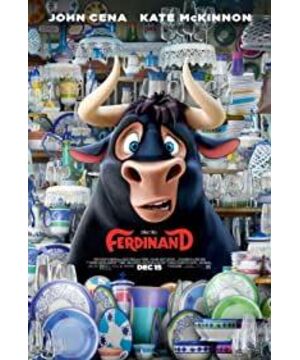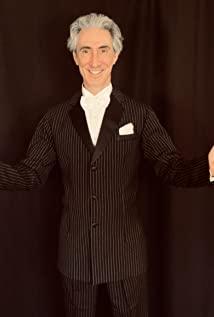If you don't get into it, this film is still very suitable for a family of three and four generations to watch together. In such a cold season, spending a happy time in the cinema is definitely worth the price.
"Bull Adventures" mainly tells this story:
In a bullfighting breeding base called "Bull's Home", almost all the bulls are preparing to go to the bullring, and they regard being picked by the bullfighter as "" Niusheng"'s biggest goal. But Ferdinand is different. He only likes flowers and plants, not violence. But this can only be seen as a "coward" by other companions, ridiculed and despised. When his father died in the bullring, he finally escaped, and was passed by a farm full of flowers for a happy "cow birth" accompanied by flowers. However, an accident brought Ferdinand back to the "House of Bulls" and began to be trained to fight bulls. Fate is back to square one again. Ferdinand was not reconciled, and began to plan an escape again. This time he wanted to take all his friends to escape to have a carefree day.
This is not a common inspirational routine, because the protagonist is not a strong growth hero, but always looks stupid and weak, and has no pursuit. In the end, he successfully rescued his companions and won applause from the audience in the bullring to escape the fate of being killed, which seemed to be completely passive and helpless. Therefore, the overall sense of powerlessness makes the protagonist lack charm.
Maybe the director wanted to create an image of "a tiger with a heart, sniffing roses", but too passive made Ferdinand's image discounted. Yes, it is a bit unrealistic for a behemoth, an animal born with ferocious habits, to completely abandon its nature and only love flowers. The protagonist can of course have the right to choose, but there is absolutely no need to portray a beast as a domestic animal.
In contrast, the creation of other animal characters is more successful, for example, the coach goat who has been babbling, the three narcissistic and arrogant horses next door, the cold, handsome, artificial cow that can discharge electricity and break dance, There is also the Angus cow, who was covering his eyes with his hair and kept talking hard to everyone's butt... They took on 80% of the laughs in the film.
The best-looking and most hilarious scenes are the bulls dancing together with the horse next door, the protagonist Ferdinand going to the slaughterhouse to save his friends, and the last part of the chase scene where the herds of cattle escape in the wild, downtown and train tracks. . There are a few places that make up for the weakness of the character, or at least distract a large part of the audience's attention.
But the sharper their images, the more blurred Ferdinand's. Besides kindness, what else? The bullfighting master said that the bull he wants to pick must not only have strength, but also wisdom, but here the protagonist's ability value that can be called "wisdom" is in arrears. The escape route was made by the little hedgehog, and it seemed that the bullfighter was playing around in the bullring because he had been hiding. Courage, of course, is there, but without the blessing of wisdom, all kindness and courage will appear insufficient.
The worst part is that the protagonist is a cow, a group of cows, an animal that acts as human food and plaything in most cases, and in the story they also live in the same world as humans and interact a lot. If that's the case, then there's basically nothing real about the story.
Can a bullfight escape the fate of being assassinated and slaughtered? Adults know it's impossible. So why should we believe that a cow that smells flowers ends up living a carefree life?
Can bullfighting, a bloody sport originating from barbaric times, disappear from now on? Could the bullfight master give up his chance to win just because Ferdinand sniffed the flowers after being played around on the field? Can the winning bull really escape the fate of being assassinated?
Let's take a brief look at what bullfighting is all about.
Bullfighting in Spain originated from ancient religious activities in Spain (killing bulls as offerings to gods). King Alfonso X of Spain started this ritual in the 13th century, and later evolved into a bullfighting performance (the real bullfighting performance appeared in the mid-18th century). Bulls are generally selected from pure wild breeds rather than domestic animals. Although it takes several years of training to enter the bullring, it is actually the nature of this animal to be aggressive. So wild bulls are not considered domesticated animals by humans. During the performance, the bulls are constantly provoked and provoked. That is, at first, the stabbing fighter would stab the back with a spear and the blood would flow down the back, and then the two shuttle darts would accurately insert the hooked shuttle dart into the back of the bleeding cow, throwing two darts at a time, three times in total. In the end, the bullfighter appeared. He exhausted the bull first, and then the bull-killer raised his sword and stabbed the bull in the heart. They will also be led into the bullpen and stabbed to death by others with swords. The bullfighter received the audience's congratulations in the triumphant music.
This is the truth of bullfighting. Therefore, cartoons are all deceptive, especially this one.
Its greatest falsehood lies in constructing a world in which a person and his own food coexist peacefully, at the expense of distorting reality. A bull who goes against his own nature and lives completely according to the good quality defined by the human world, can't choose his own destiny, whether in the movie or outside the movie. So, it's so, why should I accept a truth with false elements? Moreover, in order to speak a truth, human beings are accustomed to forcibly shaping animal images that conform to human aesthetic and moral standards. Although an animated film cannot carry so many meanings, there is such a set of logic behind it.
It's not that animated films can't use the animal world as an allegory, but the relationship between people and pets, people and livestock is different from people and wild animals. In this year's popular animated films like "Zootopia", "The Voice of Joy", "The Secret of Pets", etc., we can see that human beings either do not exist, or are related to animals as owners and pets that are easier for people to understand. Relationships, or animals and people living in the same city just use different images to allegorize the characteristics of different people or characters. Few "The Adventures of the Bull" have adapted a cruel reality relationship so beautifully.
Of course, you can also say that this is a family-friendly cartoon for children. Why do you pursue so much? The "family fun" of young children is not a problem, the problem is that the story is too fake.
View more about Ferdinand reviews











